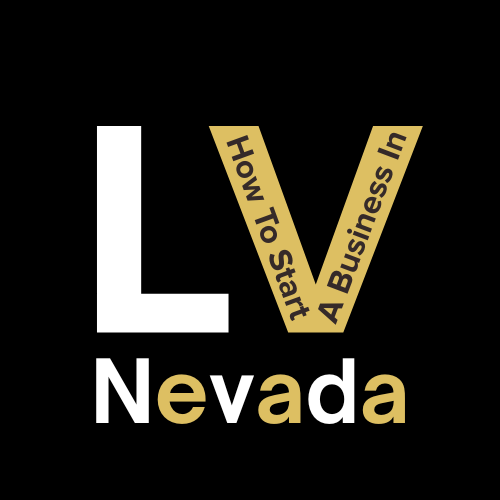
Many small business owners choose to start a limited liability company (LLC in Nevada) when opening a business because it offers liability protection, tax advantages, and management flexibility.
We’ll discuss how to prepare your Las Vegas business for success by explaining the benefits and limitations of an LLC, how to start an LLC, why Nevada is a good choice for your LLC, and other key topics.
What is an LLC?
A limited liability company (LLC) is a business structure that offers pass-through taxation and limited liability protection. Limited liability protects business owners from losing more than they invested in the business because an LLC legally exists as a separate entity from its owners.
This means owners can only be held personally responsible for the LLC’s debts and obligations if they specifically signed a personal guarantee (which is common when applying for SBA loans).
An LLC’s pass-through taxation means you are taxed on your personal tax returns instead of as a business filing. The owners, or members, report the income or loss on their personal tax returns and pay any necessary tax.
A single-owner LLC may be treated as a “disregarded entity,” which means the LLC does not need to file a tax return. Multiple owner LLCs have to file an informational tax return in addition to the business owners’ individual tax returns.
Benefits of forming an LLC in Nevada
The benefits of creating an LLC instead of a corporation, sole proprietorship, or general partnership normally outweigh any disadvantages. Some of the main benefits include:
- Limited liability: LLC owners do not have personal liability for the actions of the LLC and other members. Creditors cannot pursue the owner’s personal assets (house, savings accounts, etc.)to pay business debts. Both sole proprietorships and general partnerships allow creditors to go after personal assets to pay business debts.
Note: There are ways for creditors to “pierce the veil” and break the limited liability protection. Commingling business and personal finances, failure to file documents, and signing a personal guarantee are common ways that the veil is pierced.
- Flexible membership: Individuals, partnerships, trusts, and corporations can be owners of an LLC. There is no limit on the number of members, but if you plan to elect to become an S-corporation (a corporation that is taxed as a pass-through entity under Subchapter S of the Internal Revenue Code) there are restrictions on the type and number of shareholders.
- Management structure: LLC owners (members) can manage the LLC or hire a management group. A member-managed LLC is managed by the owners on a daily basis. An LLC may appoint managers and operate like a corporation. In this scenario the directors and officers manage the business instead of the owners.
- Pass-through taxation: LLCs normally don’t pay taxes on the business income, but on the owner’s personal income tax returns. This gives an LLC an advantage over corporations because C-Corps are taxed on business income and then their shareholders are taxed on personal income.
- Credibility: Starting an LLC helps show a new business is more serious about it’s goals and more creditworthy because the entity can be lent money without it effectively being given to a person to spend however they want.
- Limited compliance requirements: LLCs don’t have as many compliance requirements as corporations, but more than sole proprietors or partnerships.
LLC considerations
Before you decide to create an LLC, consider some of the potential disadvantages of choosing an LLC as your business structure.
- Cost: An LLC costs more to form and maintain than a sole proprietorship or general partnership, but less than a corporation. Nevada charges an initial fee of $75 for the Articles of Organization, $200 for the State Business License, and $150 for the Initial List of Managers or Managing Members. In addition, the state also charges an annual $150 for an Annual List of Managers or Managing Members and $200 for the State Business License renewal ($200).
- Compliance obligations. An LLC will need to refile paperwork annually, may need to maintain a registered agent, and may have federal requirements that it has to keep updated. Filing beneficial ownership information with the U.S. Treasury Department’s Financial Crimes Enforcement Network (FinCEN) website has been discontinued for most domestic companies, but foreign entities may need to apply.
- Transferable ownership. LLC ownership is more difficult to transfer than selling ownership in a corporation. Corporations can sell stock and shareholders can sell or transfer their stock unless there are terms preventing it. LLCs cannot add, remove, or alter membership without all members agreeing unless the articles of organization state otherwise.
How to create an LLC in Nevada: A step-by-step guide
You’ll want to follow the steps below to create an LLC in Nevada.
- Decide if Nevada is the right state to form your LLC.
- Choose a business name for your LLC.
- Choose a registered agent.
- Prepare your LLC operating agreement.
- File your LLC’s Articles of Organization.
- File a Beneficial Ownership Information Report (if applicable).
- Get your EIN, business licenses, and tax permits.
- Open a business bank account.
- Register to do business in other states (if applicable).
Step 1: Decide if Nevada is the right state to form your LLC
You can choose to create an LLC in any state even if the LLC won’t be doing any business there, but most business owners choose to form an LLC in the state they live in unless they have a specific reason to form in another state.
When you form an LLC where it is not doing business, you’ll also have to register as a foreign LLC in the state you do business. This will increase your costs and regulatory compliance.
Nevada is a great state to register if you live here, want ownership privacy, or plan to create a holding company.
Step 2: Choose a business name for your LLC
You’ll need to choose a business name that is not used by another domestic or qualified LLC or other business entity in the Secretary of State’s records. Try UpFlip’s business name generator to help you come up with ideas.
Many sole proprietors use a “doing business as” (DBA) name or trade name that may block you from using the name as an LLC.
Check business name availability to make sure it is available before you name your LLC. You can save the name for 90 days for $25 here.
Don’t forget to check to see if the name is federally trademarked using the USPTO trademark search.
Step 3: Choose a Nevada registered agent
When you’re starting an LLC, or registering an existing LLC in another state you will be required to have a registered agent located in the state.
A registered agent, or agent for service of process, is responsible for receiving legal notices and tax documents for the business. The Secretary of State and Department of Taxation may send annual reports, statements, notices, and other important legal documents to the registered agent.
A Notice of Litigation, subpoena, or wage garnishment orders may also be sent to a registered agent if there is a lawsuit against the LLC.
An LLC owner may serve as the LLC’s registered agent, but you may want a separate registered agent. One reason is the registered agent’s address cannot be a PO Box. A professional Registered Agent will also make sure that the documents are handled properly. You can find Nevada Registered Agents on the Secretary of State website.
Step 4: Prepare your LLC operating agreement
Nevada does not require an LLC operating agreement but you should create a written LLC operating agreement and include it in your documents when you start an LLC.
An operating agreement documents the division of ownership, management of the business, how labor and profits are handled, and how disputes are handled. It is also where you would include policies for changes of ownership and other business situations that may come up.
While single-member LLCs do not have to have an operating agreement, it helps increase the limited liability protection. Multi-member LLCs will definitely want one. A licensed attorney should help draft the operating agreement to make sure it covers everything you want covered in a legal manner.
Step 5: File your LLC’s Articles of Organization with the state
You’ll need to go to Nevada SilverFlume to submit the LLC formation documents online. The option to file is under “Start a Nevada Business (LLC, Corporation, etc.)” then you’ll most likely choose “Domestic Limited-Liability Company (NRS 86”).
The system will walk you through the application process which will consist of two parts, creating the LLC and getting other required licenses and permits.
The cost is $425 plus any other fees for the additional licenses and permits.
Can an LLC be “incorporated”?
No. People might call an LLC “incorporated” but only corporations are incorporated. Even an LLC taxed as an S-Corp is not technically incorporated. It is better to refer to the LLC as “formed” or “organized”.
What are LLC Articles of Organization?
The Articles of Organization in Nevada consist of 12 sections:
- Name being registered in Nevada
- Foreign entity name (only if registering as a foreign entity)
- Jurisdiction of formation (only if registering as a foreign entity)
- Registered agent for service of process
- Management
- Name and address for managers or members
- Dissolution Date (End Date or Perpetual)
- Profession (Only needed for NRS 89 Professional LLCs)
- Series and/or Restricted Limited Liability Company (Optional, Commonly used in real estate)
- Records Office (Foreign LLCs only)
- Street Address (Foreign LLCs only)
- Signatures
The state will issue a Certificate of Organization. The certificate is legal proof of the LLC’s existence and you’ll use it to open a business bank account and get an EIN.
Step 6: File a beneficial ownership information report
Many LLCs need to file a beneficial ownership information (BOI) report with FinCEN (U.S. Department of Treasury’s Financial Crimes Enforcement Network). A BOI report declares who owns and operates the business. Non-exempt LLCs also have to submit information about the person who files the application. Visit the FinCEN website for more information.
Step 7: Get your EIN, business licenses, and sales tax ID
You’ll need to get your employer identification number (EIN) from the IRS. You’ll use the EIN on bank accounts, tax returns, and employment tax filings.
You’ll also need to apply for a sales tax identification number in each state that you’ll be doing substantial business in. Consult with an attorney to find out which states you need to register.
In addition, you will need licenses, permits, and to register with the labor department in each place you’ll be doing business.
Step 8: Open a business bank account
You’ll want a business bank account when you create an LLC to separate your personal and business finances. This makes tracking your expenses, filing taxes, and protecting your limited liability protection easier.
This is one of the main things you have to do to prevent people from piercing the veil.
You might also want to apply for a business credit card.
Step 9: Register to do business in other states (if necessary)
Your LLC may need to form in other states if you have:
- Physical presence (a building)
- Employees in the state
- Accept over a certain number of orders or revenue in the state.
Each state has different criteria. Seek legal advice to establish whether you need to register in other states.
Compare LLCs with other entity types
When forming a business, one of the most important steps is deciding on the business structure. There are several business entity options available that each present different advantages and disadvantages.
LLC FAQs
What LLC forms are required to start a limited liability company in Nevada?
Articles of Organization, Member List, State Business License List, Registered Agent Form, Customer Order Instructions, and Expedition Form are all included in the application which you can find here. You may also want to include a operating agreement
Who can form an LLC in Nevada?
Any person over the age of 18 or business entity can start an LLC in Nevada. Nevada does require LLCs to obtain a state business license and file an annual list of members/managers.
Do I need an attorney to form an LLC in Nevada?
No. You can prepare and form an LLC in Nevada on your own. You may want to have an attorney help you if you have special requirements for a multi-member LLC with an operating agreement.
What should I name my LLC?
Choosing your LLC’s business name is a complex process. You should consider whether the name is available on social media handles, web domains, business names, and trademarks before selecting a name. It can also help to use words that are commonly associated with the industry or location you operate.
LLCs are required to include one of the following words in the name: “Limited-Liability Company,” “Limited Liability Company,” “Limited Company,” or “Limited,” or the abbreviations “Ltd.,” “L.L.C.,” “L.C.,” “LLC,” or “LC”.
There are also words you cannot include that are too many to list. Find them here.
How many people are needed to form an LLC?
Nevada LLCs may have a minimum of one member and no maximum number of members unless they elect to be treated as an S-Corp which may have a maximum of 100 members.
How is a limited liability company (LLC) taxed?
An LLC is taxed under a variety of tax laws depending on it’s circumstances.
- Single-Member: Taxed as a sole proprietor. Pass-through income.
- 2+ Members: Taxed like partnerships and must file informational returns. Pass-through income.
- LLC Filing As S-Corp: Must pay members working in the business a salary and collect payroll taxes. Profits may be paid as dividends to lower tax consequences.
What is the organizational structure of an LLC?
The organizational structure of an LLC will be determined by the operating agreement and Articles of Organization. LLCs can either be owner-operated or manager-operated. Depending on the scenario, it may work like a sole proprietorship, partnership, or corporation.
How is an LLC managed?
An LLC may be managed by the owners or independent managers. You’ll need to opt-in to manager-ran LLCs because the member-managed is considered default.
Does my LLC need a registered agent?
Yes. Your LLC needs a registered agent. Assuming you live in the same state, you can act as the registered agent, but if you do not live in the same state you’ll need an independent one.
How do I ensure my LLC always has a registered agent?
Most registered agents offer the service for a fee. To make sure you always have a registered agent you can pay for multiple years upfront or opt-in to automatic renewals if the registered agents offer them.
How do I get started setting up a limited liability company (LLC)?
After you decide to form an LLC, go to NV SilverFlume and begin the application process then pay the fee.
How soon will I receive my documents when I select the Rush Filing Service?
Nevada offers 1-hour, 2-hour, and 24-hour expedited fees. You’ll get them back within that period assuming your LLC form is approved. NV SilverFlume is normally pretty quick about approving them either way so you might not want to spend the extra money for expedited services.
What is a single-member LLC?
A single-member limited liability company provides protection of personal assets but is a “disregarded entity” for federal tax purposes.You will fill out a Schedule C and report on Form 1040.
What is an LLC operating agreement?
An LLC operating agreement is a contract that documents how an LLC will be owned and managed. Nevada does not require them, but they are good to create and submit with the formation paperwork.
What are the benefits of an LLC?
The benefits of a limited liability company include tax benefits, management flexibility, a liability protection against actions of other people inside the LLC. Learn more about the advantages of an LLC above.
What is a Professional LLC (PLLC)?
A PLLC is a limited liability company that provides professional services in regulated industries like engineering, architecture, accounting, and law.
How do I get an EIN for my LLC?
Businesses apply for an EIN (Federal Tax ID number) by preparing Internal Revenue Service (IRS) Form SS-4 and filing it with the IRS.
How much does it cost to register as an LLC in Nevada?
The LLC formation filing fees are $425 for domestic LLCs. There are additional fees for other types of formation and expedited service.
More questions about LLCs?
We hope this helps you understand the benefits of a Nevada LLC. When considering whether to start a Nevada LLC, make sure that it makes sense for your situation, then go to the SilverFlume website to form your LLC.
Want help deciding what type of business to start?
Reach out for a free consultation.


Leave a Reply
You must be logged in to post a comment.